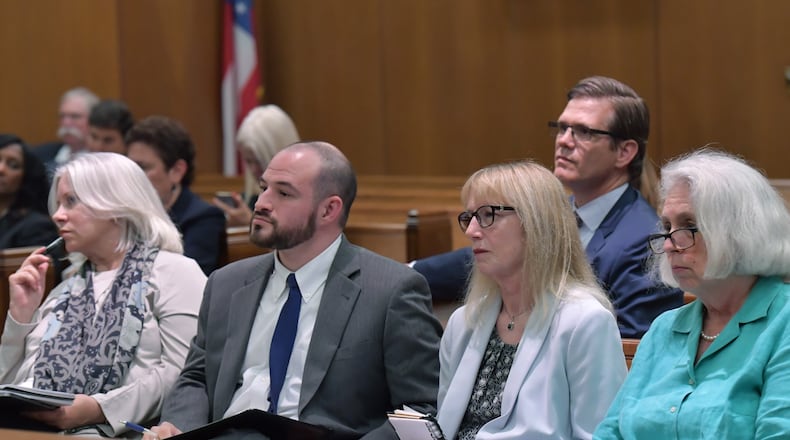An election integrity organization sued over Georgia’s voting law Monday, challenging provisions that allow state takeovers of local elections, shorten absentee ballot deadlines and change absentee ID requirements.
The case is the seventh federal lawsuit trying to throw out parts of the voting law. It was filed by the Coalition for Good Governance, five county election board members and several voters.
The lawsuit opposes allowing the State Election Board to replace county election boards after performance reviews. A temporary county election superintendent appointed by the majority-Republican board would have broad authority to certify elections, fire staff, decide on voting locations, spend tax money and set policy.
“The takeover provisions are so egregious and dangerous to every concept of free and fair elections that they must be stricken from the law before they undermine Georgia’s elections,” said Marilyn Marks, executive director for the Coalition for Good Governance.
The litigation also takes issue with “impractical” absentee ballot deadlines that require voters to request a ballot at least 11 days before an election, leaving little time to vote by mail in runoffs. The voting law shortened the period between general elections and runoffs from nine weeks to four weeks.
In addition, the lawsuit objects to verifying absentee ballots based on state ID numbers rather than voter signatures. ID numbers written on absentee ballot envelopes could be stolen and used to commit identity fraud, according to the lawsuit.
Other parts of the 152-page complaint oppose making it a felony to intentionally observe votes on a large touchscreen, limiting photography within polling places and prohibiting election observers from reporting issues to anyone besides election officials.
The suit alleges Georgia’s law violates protections for freedom of speech, the right to vote and separation of powers.
Separate lawsuits against Georgia’s voting law have opposed drop box restrictions, ID requirements, absentee request deadlines, provisional ballot disqualifications, food and drink limits in voting lines, and absentee ballot request mailings.
About the Author
Keep Reading
The Latest
Featured



